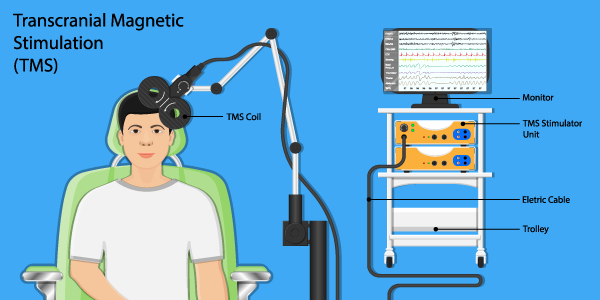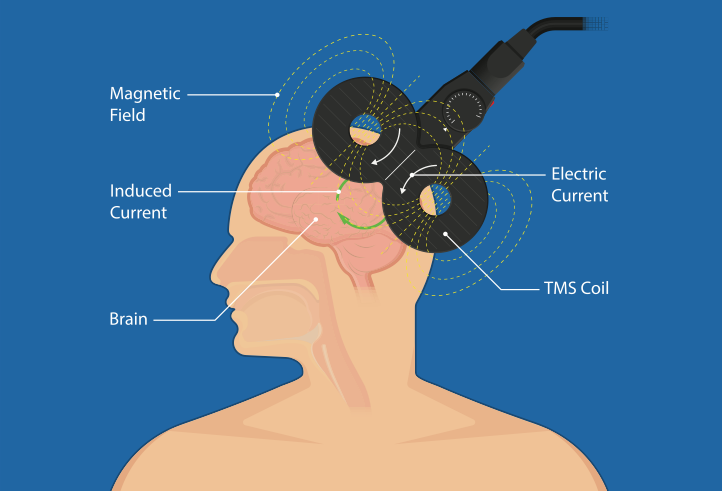
Transcranial magnetic stimulation (TMS)
NOVEL BRAIN
What is rTMS?
Repetitive transcranial magnetic stimulation (rTMS) is a safe and certified method of treating various mental and neurological disorders. rTMS utilizes short magnetic pulses of low or high intensity to stimulate the corresponding areas of the brain and in turn achieve treatment of a given disease. A magnetic field is created which changes the electrical activity of the nerve cells, thus inducing changes in the synaptic patterns and the brain’s connectome (network of active brain connections) at large.
Each session is individually adapted to the patient, depending on their own treatment requirements.
Each session is individually adapted to the patient, depending on their own treatment requirements.
In which diseases does rTMS have therapeutic properties?
The therapeutic potential of rTMS has been demonstrated in the following cases:
- Depression
- Addictive behavior (alcoholism, smoking, drugs, gambling, etc.)
- Alzheimer’s disease
- Obsessive-compulsive disorder (OCD: microphobia, compulsive behavior, aggression, etc.)
- Posttraumatic stress disorder (PTSD)
- Tourette’s disease
- Chronic pain syndrome (fibromyalgia, skeletal muscle pain, etc.)
- Generalized anxiety disorder (GAD)
- Bipolar personality disorder (BPD)
- Movement disorders, such as Parkinson’s disease, functional tremor, focal epilepsy, cortical myoclonus, and spasticity.
rTMS has been proven to be one of the most effective methods of treating depression without the use of drugs. It is used worldwide with confirmed results of complete healing of depressive behavior.
What is the procedure for using rTMS?
Psychiatrists, psychologists, and neurologists collaborate to conduct a complete assessment of the patient’s condition. Emphasis is placed on the entire history of a person’s mental/neurological disorder, including any previously prescribed medications and their effects. Each case is different, so it is carefully investigated to assess its suitability for rTMS therapy:
- A patient is first assessed by our experienced psychiatrists and psychologists with a detailed mental and physical health examination.
- Depending on the diagnosis, the corresponding protocol (repressive protocols, stimulation protocols of varying duration) is applied in a specialized environment, always under the supervision of medical and nursing personnel.
- The patient sits in a comfortable chair and an electromagnetic coil is placed in the forehead area, which generates magnetic impulses.
- Finally, after completing the procedure, the patient may feel a slight tingling in the muscles of the head or a headache, which is completely normal. Of course, they can return to their daily routine after the session.


Providing comprehensive services
In our center, independent psychoanalytic and psychotherapeutic techniques are presented in specialized classes for everyone. There is also an experienced dietitian from our Eating Disorders Team for assessment and nutritional consulting.


